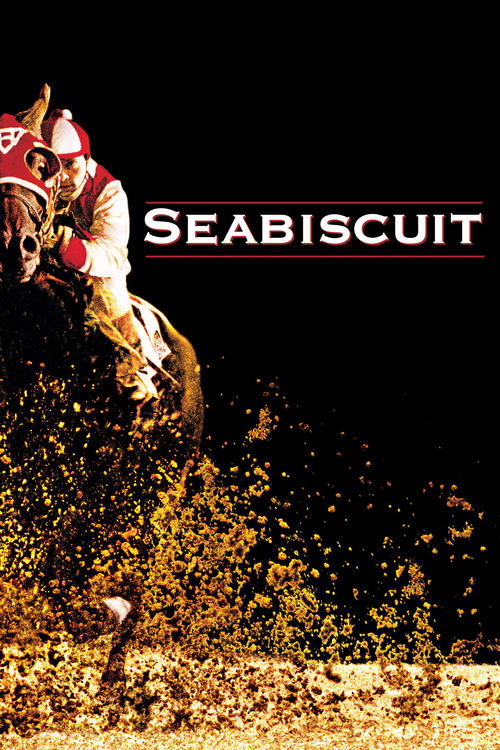
Title: Seabiscuit
Year: 2003
Director: Gary Ross
Writer: Gary Ross
Cast: Tobey Maguire (Red Pollard),
David McCullough (Narrator),
Jeff Bridges (Charles Howard),
Chris Cooper (Tom Smith),
Elizabeth Banks (Marcela Howard),
Runtime: 141 min.
Synopsis: True story of the undersized Depression-era racehorse whose victories lifted not only the spirits of the team behind it but also those of their nation.
Rating: 7.051/10
Hooves of Hope: Seabiscuit’s Quiet Triumph Over Despair
/10
Posted on July 13, 2025
In Seabiscuit (2003), director Gary Ross crafts a narrative that transcends the racetrack, weaving a tapestry of human resilience through the lens of an underdog thoroughbred. The film, adapted from Laura Hillenbrand’s book, centers on three broken souls jockey Red Pollard (Tobey Maguire), trainer Tom Smith (Chris Cooper), and owner Charles Howard (Jeff Bridges) who find redemption in the unlikely rise of a knobby-kneed horse. What makes the film remarkable is not its historical fidelity but its emotional precision, capturing the Great Depression’s quiet desperation and the fragile hope that binds its characters. Ross’s direction is understated yet deliberate, allowing the story’s heart to pulse through intimate moments rather than grandiose spectacle. The screenplay, penned by Ross, balances character depth with narrative momentum, though it occasionally leans too heavily on expository dialogue, particularly in early scenes, which can feel like a history lesson rather than a lived experience. Where the film soars is in its performances: Maguire’s raw vulnerability as Pollard, a man battered by poverty and pride, contrasts beautifully with Cooper’s stoic, almost mythic portrayal of Smith, whose terse wisdom anchors the film. Bridges, meanwhile, infuses Howard with a salesman’s charisma tempered by grief, making his optimism feel hard-won. Cinematographer John Schwartzman elevates the racing sequences into balletic studies of motion, with tight close-ups of churning hooves and sweat-streaked faces that convey both urgency and intimacy. Yet, the camera’s occasional reliance on sepia-toned nostalgia can feel manipulative, as if signaling “importance” rather than trusting the story to speak for itself. Randy Newman’s score, while evocative, sometimes swells too predictably, undercutting subtler moments with orchestral insistence. The film’s true genius lies in its depiction of Seabiscuit as a mirror for its human counterparts not a symbol of victory, but of stubborn survival. By focusing on the horse’s grit rather than glory, Ross sidesteps sports-movie tropes, though the final act’s triumphant arc risks oversimplifying the messier truths of its characters’ lives. Seabiscuit is not flawless, but its imperfections feel human, much like its heroes, making it a poignant reflection on healing through shared struggle.
0
0
